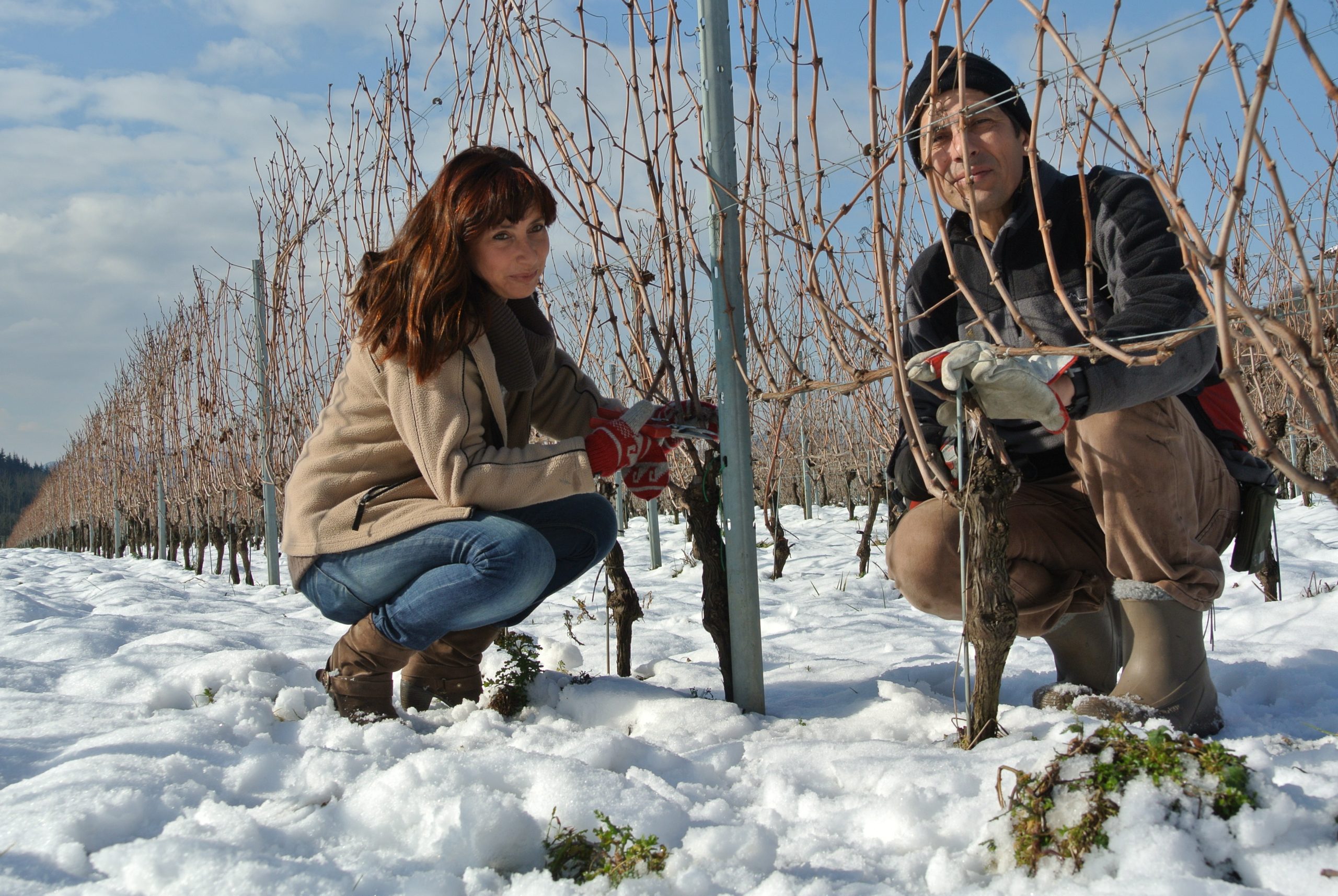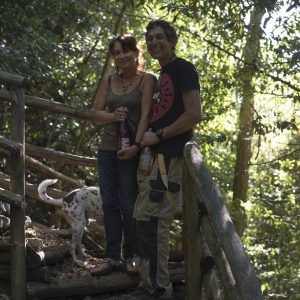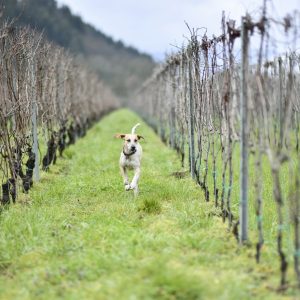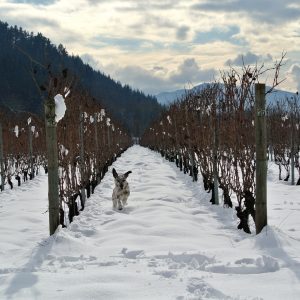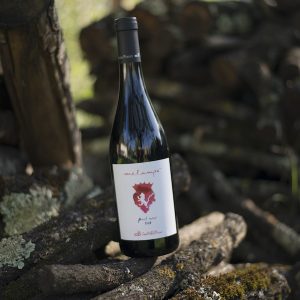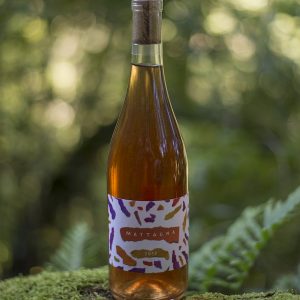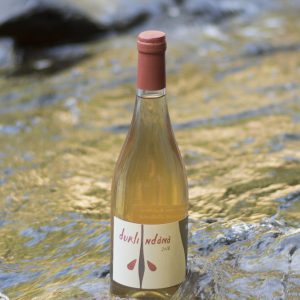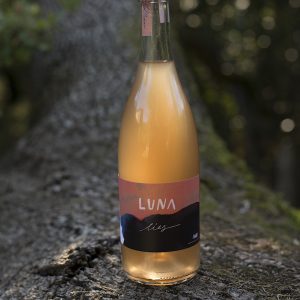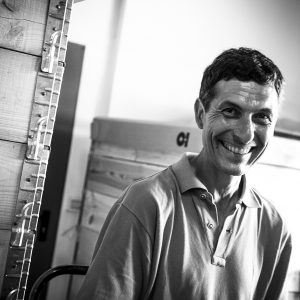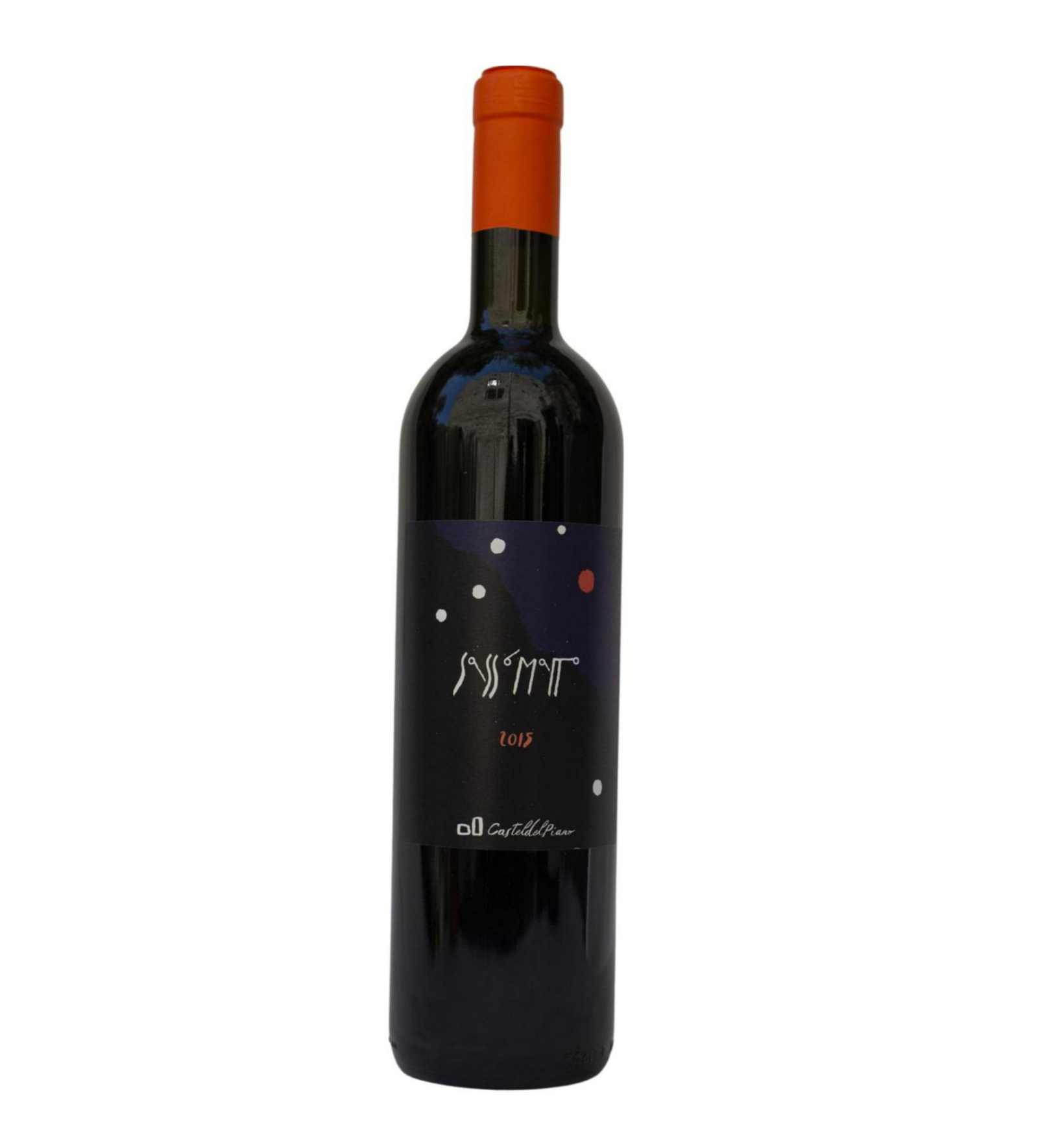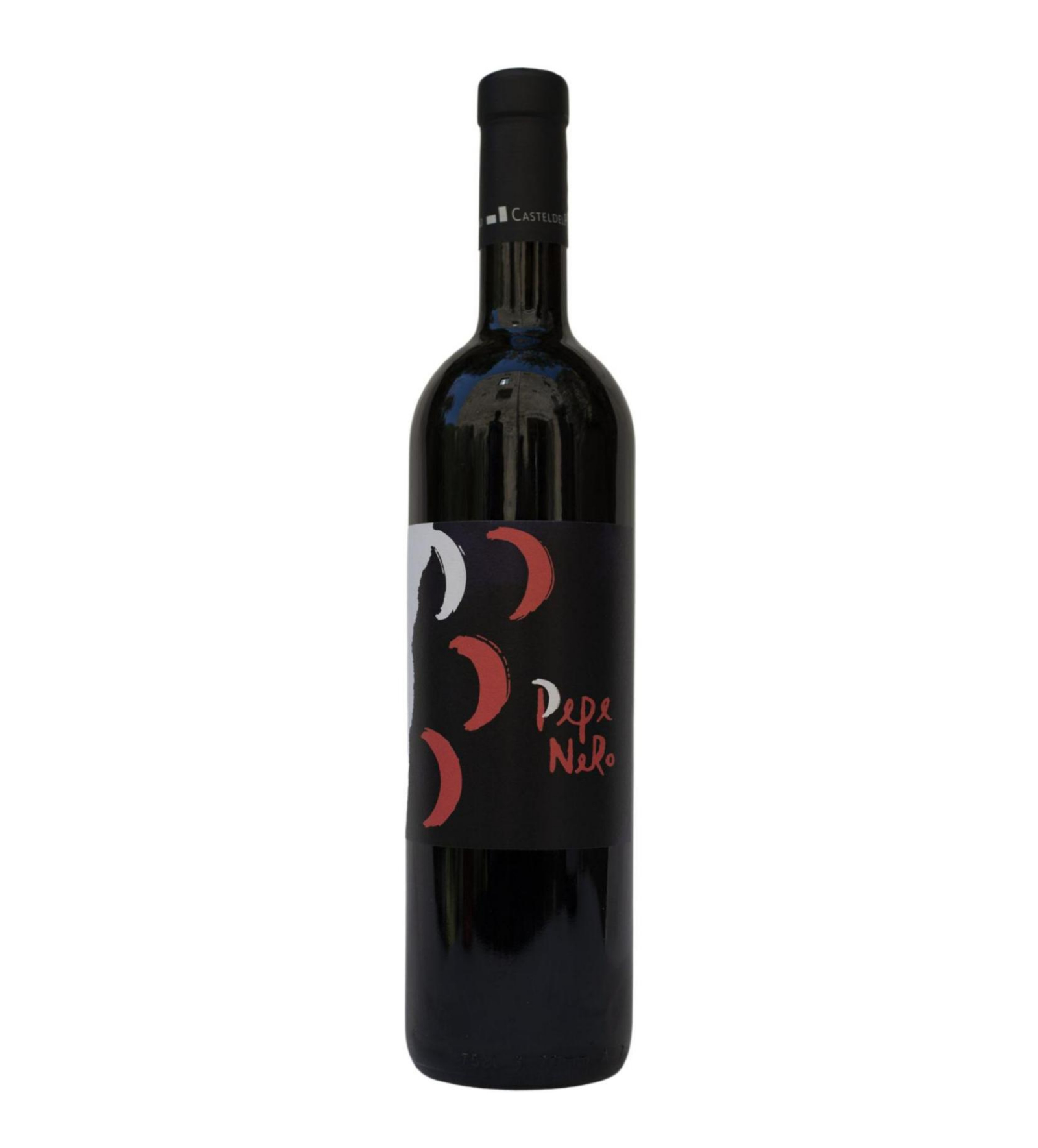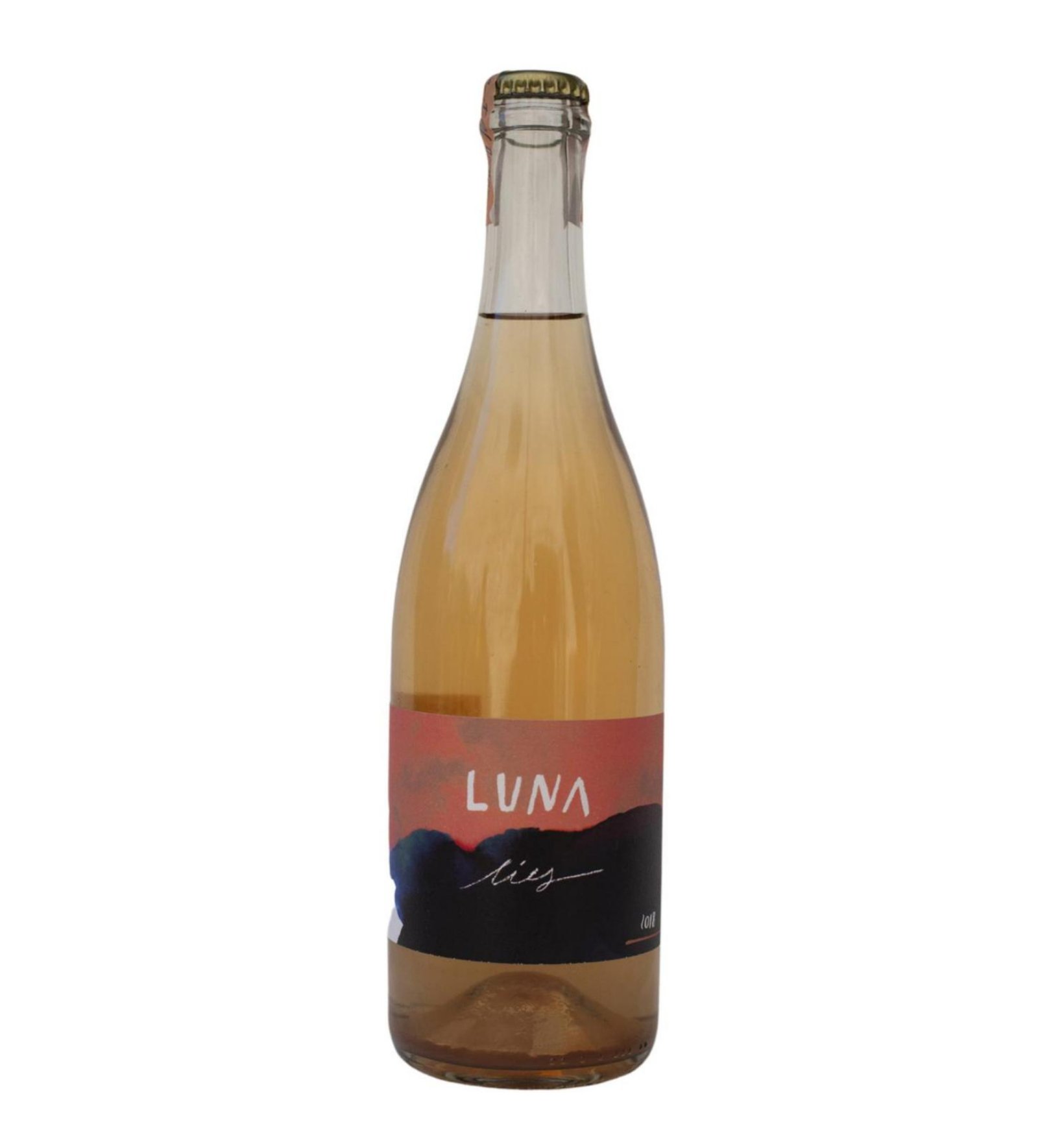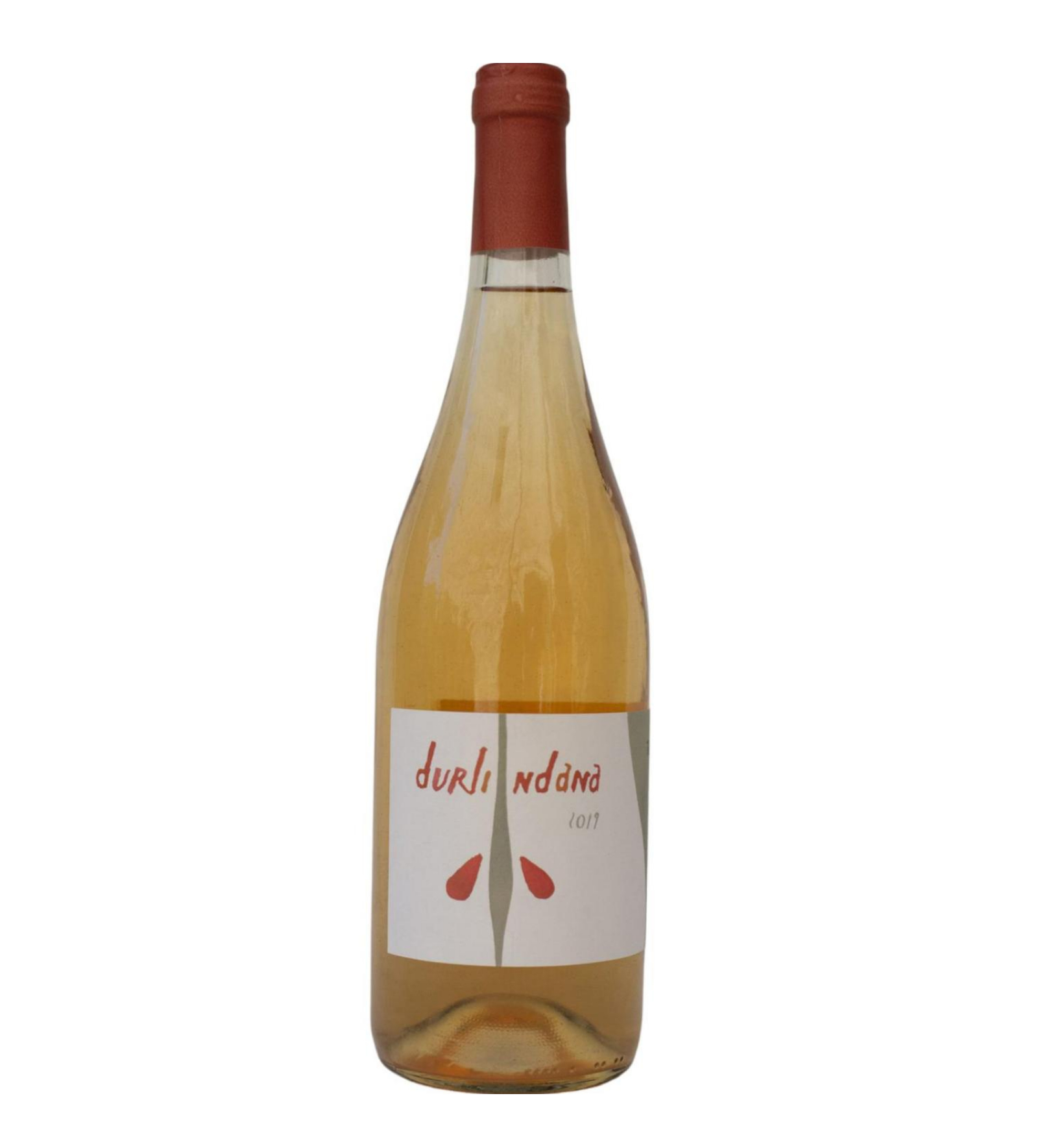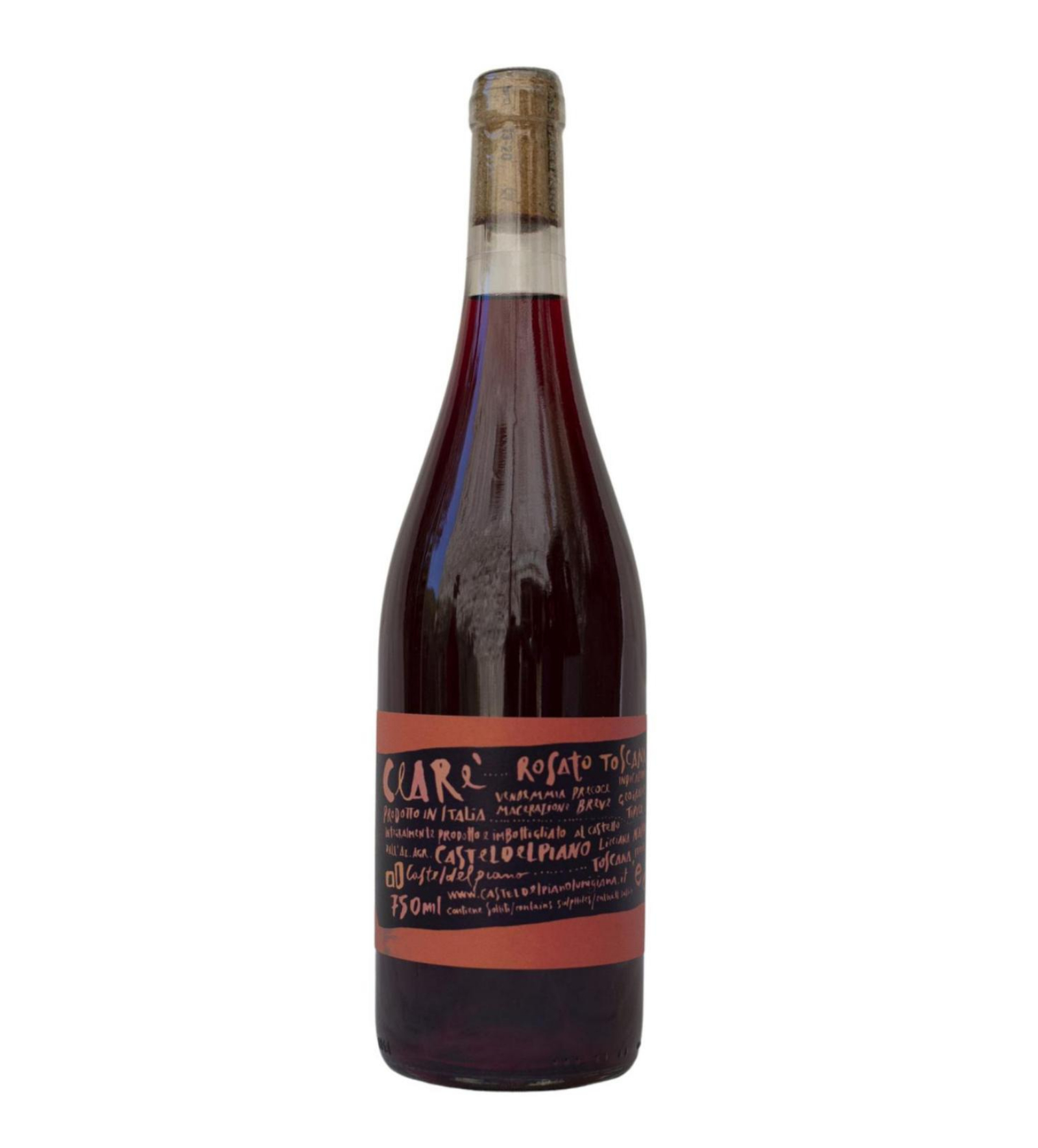Castel del Piano
Driven by the desire to change life, in the early 2000s, Andrea and Sabina left Milan and then created their own farm in Lunigiana, between Tuscany and Liguria.
Location of vineyard:
Licciana Nardi
Type of agricolture:
Biological e Biodynamic
System of cultivation
Guyot and spurred cordon
Grape Certification:
Biological
This is the story of Andrea and Sabina, husband and wife with a great passion for the world of wine.
Driven by the desire to change life, in the early 2000s, the couple left Milan to then create their farm in Lunigiana, between Tuscany and Liguria, a small region rich in history, which looks like a real kaleidoscope of lights, colours and images, green landscapes that end, high up, in the jagged peaks of the Apuan Alps and in the vast meadows of the Apennines.
Andrea, what prompted you and Sabina to choose Lunigiana as the place where to start your adventure?
It was 2003 and we toured for some time in Tuscany and Liguria, then a weekend we landed in Lunigiana and it seemed to us a beautiful land rich in nature, despite the abandonment by farmers who made it a wild territory… a detail that we immediately liked. Here there are hills adjacent to the Apennines completely uninhabited, full of woods, streams… all very nice things to see.
In this area we discovered beautiful villages and realities rich in history and typicality until the day we came across a farm that was a small castle of Malaspina now abandoned for about 15 years surrounded by a vineyard, a chestnut grove and an olive grove overlooking the stream (the Taverone).
The farmhouse immediately fascinated us by the fact that it was all abandoned, with collapsed walls covered with vines… in short, it was love at first sight.
The adjacent vineyard, also abandoned, having already many faults formed over the years, had to be fixed and so in this project we had to replant the vineyard, build a wine cellar and restore the house, you can imagine that for us it was a real adventure.
Which kinds of vines do you grow?
The varieties of Lunigiana have always been very interesting, we had already tasted some wines made by local winemakers, and we discovered that this is an area characterized by a remarkable biodiversity of vines, subject also of research by the University of Pisa that until now has identified about 70 varieties that are unknown in other areas of Italy, varieties that have been collected in a vineyard named “Collection” in order not to lose track of it.
The Lunigiana is a borderland between Tuscany, Liguria and Emilia with a very variable climate as there are areas that suffer from the influence of the sea as Massa, Carrara, Sarzana instead we are inside right at the foot of the Apennines. During the day here comes wind from the sea that warms and brings humidity, while at night, especially in summer, a fresh wind comes from the mountain it dries the humidity and brings temperature changes that we found to be about 20 degrees between day and night.
The vines we grow are Pinot Gris, Chardonnay, Pinot Noir, Merlot, and very interesting rare vines that are Vermentino Nero, Pollera, Durella and Merla grapes found only in Lunigiana.
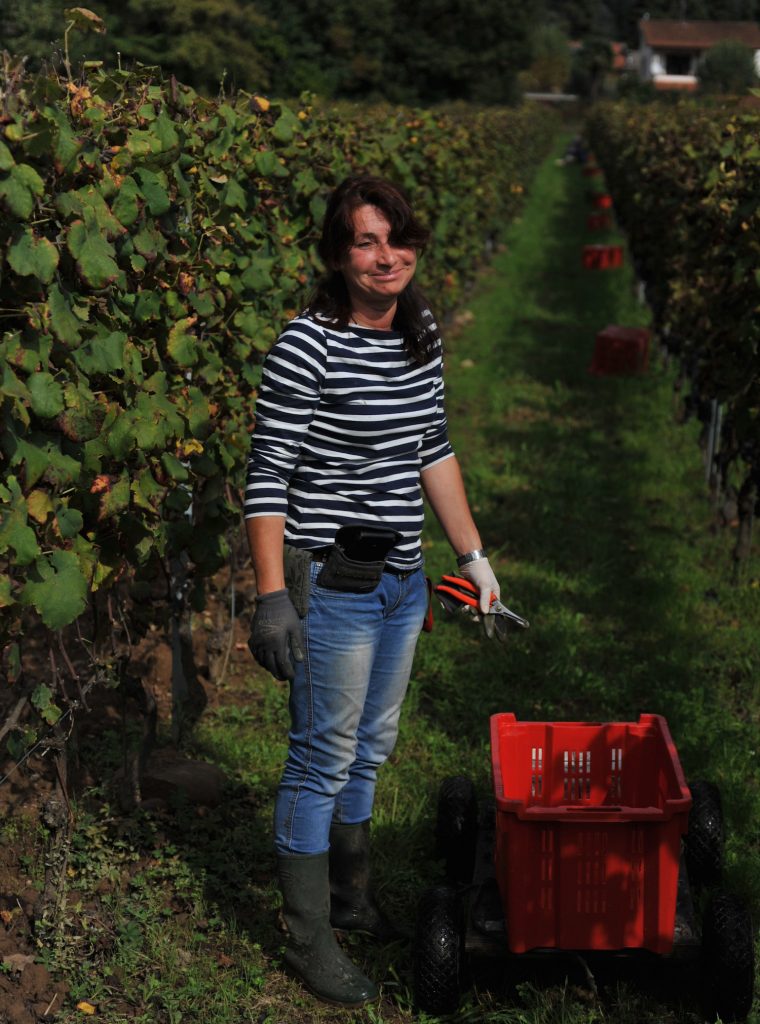
Black Vermentino is perhaps the most mysterious of the vines we found, a black grape variety that in the past was widespread in this area and then was abandoned almost completely. It is very similar to Vermentino bianco, so it has a bunch and a fairly large berry, it is quite productive so it needs to be worked to contain its vigor, and having a thin skin gives very graceful wines with spicy and balsamic notes.
Pollera is a red grape variety widely spread in Lunigiana and its characteristic is the variety. In the vineyard there are two subtypes, one of which has a skin that goes more on the rosé, while the other is darker and the bunch and the berry are medium. With this grape we made some wine making tests that led us to prefer the white one that in our opinion is more pleasant.
Durella is a native vine of Lunigiana not to be confused with Durello Veneto because, despite having a similar name, they are genetically two different plants. The bunch and the grape are medium, and the peculiarity of this grape is that despite it becomes sweet at the end of ripening, it always maintains a strong acidity.
The blackbird grape is a biotype of ‘canaiolo’ with a great genetic variability for which there are plants with smaller clusters, and plants with larger clusters. Having these plants all together in the vineyard, bring some difficulty of cultivation but the results are always interesting because the plants that are more productive retain more acidity, while the less productive ones give more sugar and body to the wine and all this makes the difference in the glass.
Cultivation and Vineyard
The vineyard is located on a kind of natural step 40 meters high overlooking the stream, and consists of two bodies with a road in the center. The land in the past was the ancient riverbed and is now a very deep deposit of stones, sand and silt.
Agriculture is organic so we do not use any type of herbicide or fertilizer, but we produce our own compost with the residues of the harvest, which we mature for a year, and then spread it in the fields as an aid to the fertility of the soil. In addition, we also use some biodynamic preparations such as horn manure, just to promote the biodiversity of organisms and microorganisms underground, and to make sure that the plant defends itself. We use copper and sulfur and nothing more.
Cellar
The Cellar is a building in wood and brick, well insulated and we immediately thought to cover it with the photovoltaic that we need to refresh the premises where the wine is stored and for all the energy needs of the company.
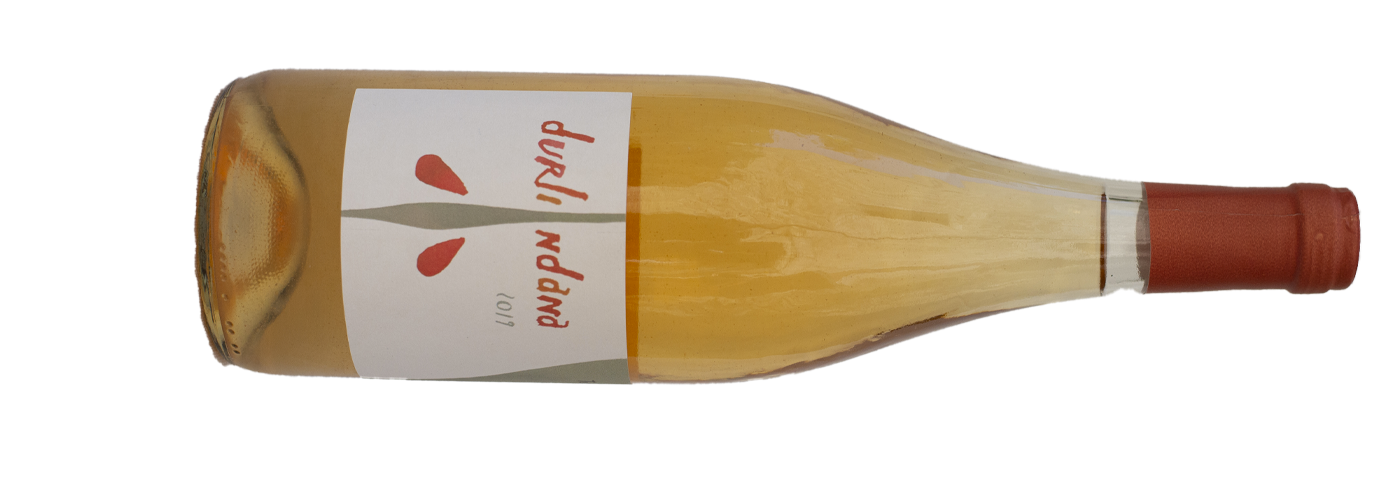
CASTEL DEL PIANO
DURLINDANA 2020
Black Pollera is a red grape variety widely spread in Lunigiana that has as its characteristic the variety. This wine comes from organic and biodynamic farming for a full and dutiful respect for nature, and to bring in the glass a live wine, a true and pure expression of its territory. White wine made from red grapes, has a warm color, floral hints characteristic of the grape and a remarkable flavor that does not disturb but, on the contrary, makes this wine easy to drink.
CASTEL DEL PIANO
CLARÈ 2019
Only 2000 bottles of a blend of Pinot Grigio and Pinot Noir grapes cultivated in Licciana Nardi in Lunigiana, a borderland between Tuscany and Liguria. From alluvial soil composed of stones, sand and silt, Sabina and Andrea bottle a natural wine with an intense pink color, the tannins are smooth, a juicy wine that compulsively asks for the next sip, Serve at 12 /14 º degrees.

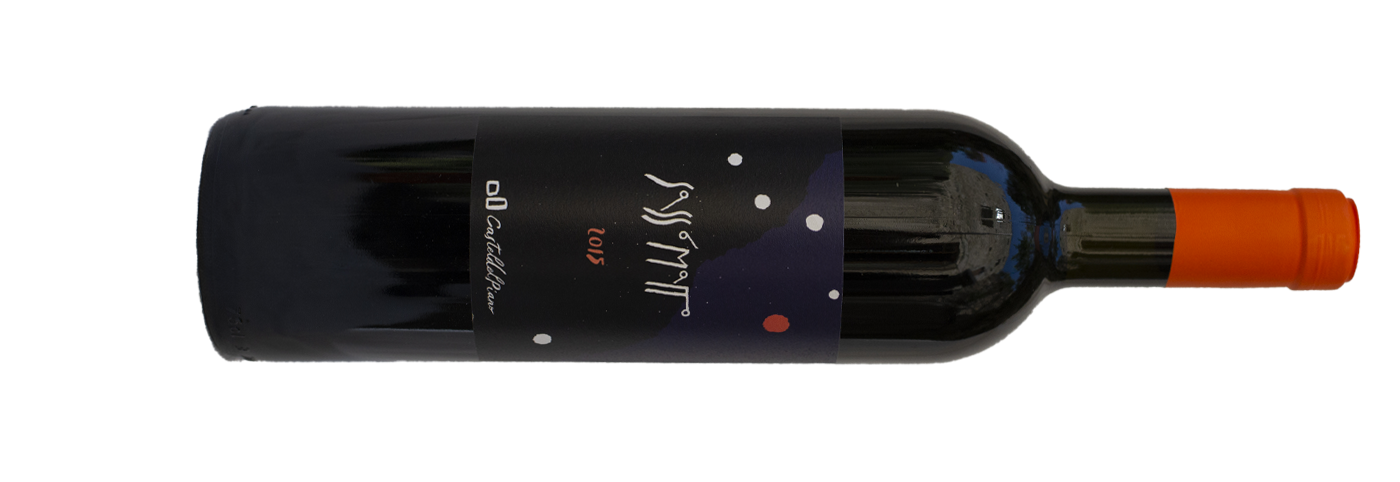
CASTEL DEL PIANO
SASSOMANO 2015
The blackbird grape is a biotype of the Canaiolo vine and has a great genetic variability. For this reason there are plants with smaller clusters, and plants with larger clusters. Having these plants all together in the vineyard, bring some difficulty of cultivation but the results are always interesting because the plants that are more productive maintain more acidity, while the less productive ones give more sugar and body to the wine, making a difference in the glass. Sassomano ages in steel on fine yeasts for 12 months, then bottle for another 24 months. The wine is balanced and the bottle ends in a short time.
CASTEL DEL PIANO
LUNALIES 2019
This wine is made from Vermentino Nero and Canaiolo grapes grown organically and biodynamic. A first spontaneous fermentation in steel is carried out and a second fermentation in the bottle after the addition of the must of the same vintage.
Natural sparkling wine sur lie, characterized by a fine perlage, fruity notes, pleasant freshness and good persistence.

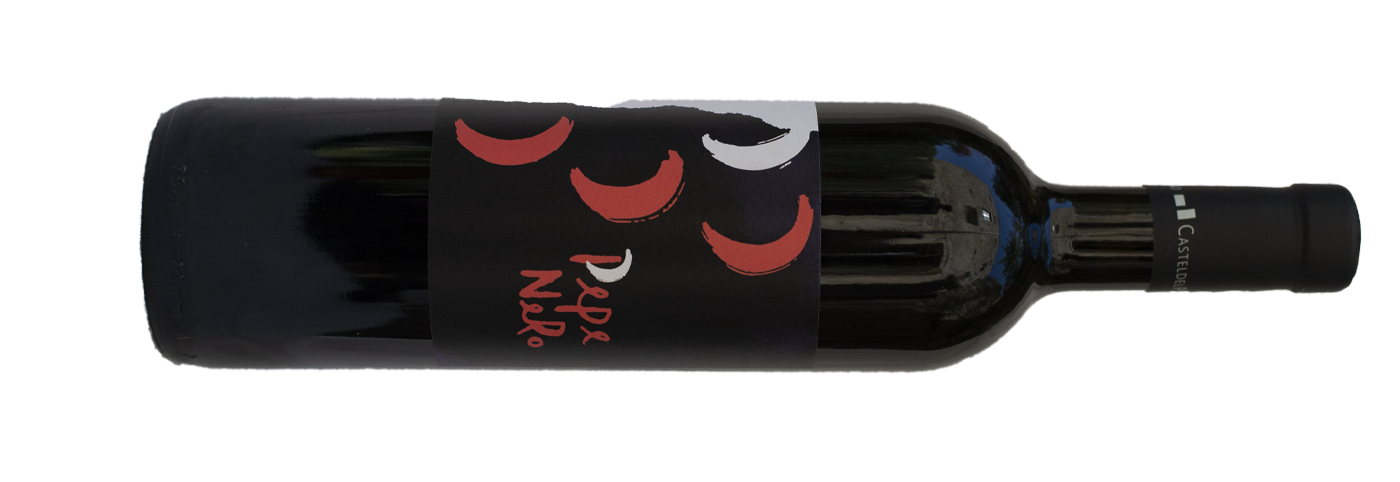
CASTEL DEL PIANO
PEPENERO 2019
100% Vermentino Noir, this wine macerates on the skins in steel for two weeks, spontaneous fermentation and no type of clarification and filtration. The nose is spicy, balanced in the mouth, juicy with well-integrated tannins and alcohol. Serve at 16 ºC.
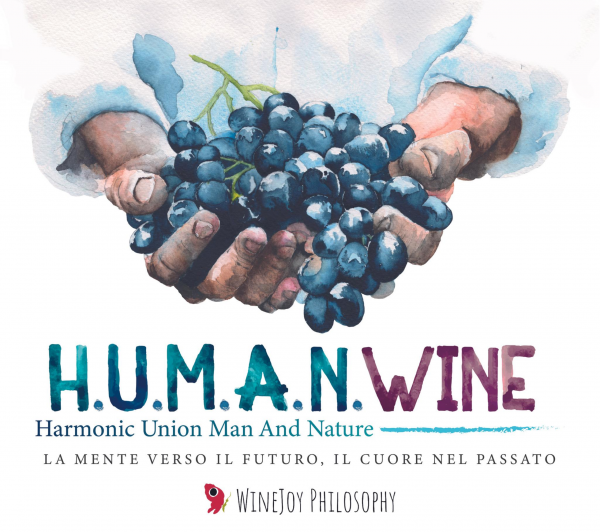
WINEJOY TRUE NATURAL JOY
H.U.M.A.N. WINE
Harmonic Union Man and Nature
H.U.M.A.N WINE for the buyer who not only chooses a label, but a lifestyle: HARMONIOUS, HUMAN AND NATURAL
The spirit that animates producers and distributors of human wines is based on the search for a harmonious balance between Man and Nature, in which the Human Being recognizes himself as a special Living Being, that engages its intelligence and its tireless work in the search for natural laws and always new techniques, without ever forgetting the legacy of a wealth of knowledge and practices millennial:
THE MIND TOWARDS THE FUTURE, THE HEART IN THE PAST
